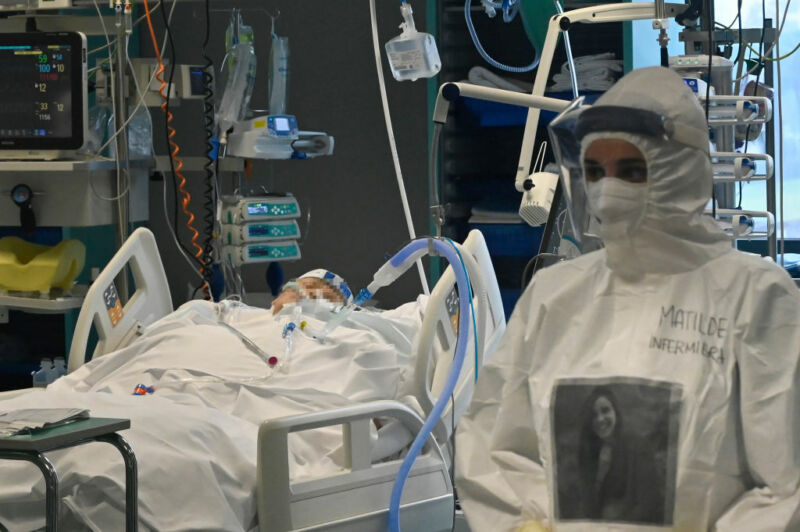Looking into the genetics of severe COVID-19

Enlarge / Researchers have looked at whether there are genetic influences on who experiences a case of severe COVID-19. (credit: ALBERTO PIZZOLI / Getty Images)
The body's response to SARS-CoV-2 infection range from imperceptible to death, raising an obvious question: what makes the difference? If we could identify the factors that make COVID-19 so dangerous for some people, we could do our best to address these factors and provide extra protections for those who are at highest risk. But aside from the obvious-health disparities associated with poverty and race seem to be at play here, too-we've had trouble identifying the factors that make a difference.
A recently published study takes a look at one potential influence: genetics. In a large study of UK COVID-19 patients, researchers have found a number of genes that appear to be associated with severe cases, most of them involved in immune function. But the results don't clarify how immune function is linked to the disease's progression.
All in the genesThe work took place in the UK, one of the countries involved in the GenOMICC (Genetics Of Mortality In Critical Care) project, which has already been exploring the genetics underlying hospitalization for communicable diseases. For the new study, the researchers worked with over 200 intensive care units in the UK to identify study participants. All told, they managed to get genetic data for over 2,700 critical COVID-19 patients. These were matched with people in the UK's Biobank who had similar demographics in order to provide a control population. The one weakness of this design is that some people in the Biobank may be susceptible to severe COVID-19 but simply haven't been infected yet, which would tend to weaken any genetic signals.
Read 9 remaining paragraphs | Comments